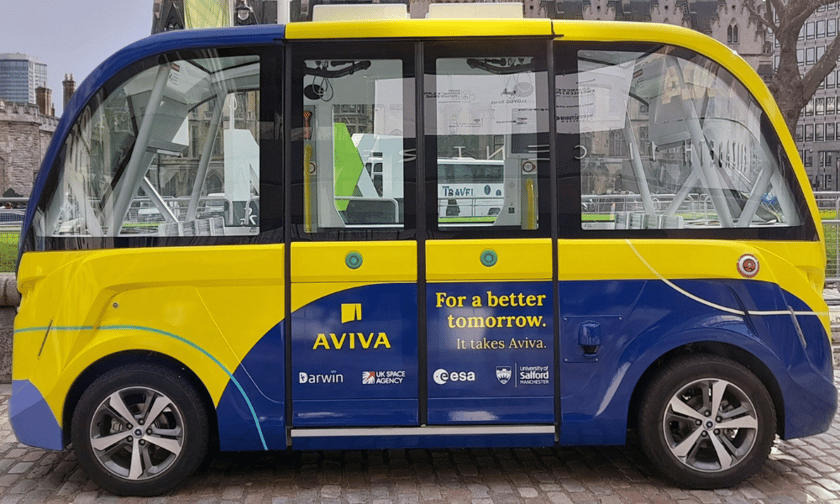

The Aviva-insured Darwin Autonomous Shuttle project has expanded, with the University of Salford now on board and a second shuttle added to the service.
Described as the longest-running self-driving passenger service in the UK, the Darwin Autonomous Shuttle has been operating for two years, carrying passengers around Harwell Science and Innovation Campus in Oxfordshire.
Under the project, which has the backing of the European Space Agency and UK Space Agency, autonomous vehicle operator Darwin Innovation Group has been sharing data with Aviva to further understand how to insure connected and autonomous vehicles.
With a second shuttle, the goal is to enrich the information gathered from the service. Additionally, by collaborating with Darwin, the University of Salford hopes to gain lessons and ultimately deploy self-driving vehicles in Manchester.
Aviva noted: “Like the original Darwin Autonomous Shuttle, the new shuttle has no driver and no steering wheel, instead using cameras, LiDAR sensors, 3D maps, and self-driving software to navigate a route, stop for passengers, and detect obstacles.
“The use of a second shuttle enables a greater understanding of how self-driving vehicles interact with each other in a real-world setting.”
Highlighting the benefits, Aviva motor head Tom Pitney said: “The addition of a second shuttle to the autonomous vehicle trial marks an important milestone in our five-year partnership.
“This trial will give us access to a wealth of rich data, providing valuable insights into claims, underwriting, risk, and product areas. This will enable us to be at the forefront of future mobility and ensure that we have products ready to insure the vehicles on our roads as they evolve and change.”
Darwin co-founder Daniela Petrovic added that it’s important for insurers to develop as transport evolves, given the interwoven nature of the two industries.
What do you think about this story? Share your thoughts in the comments below.
